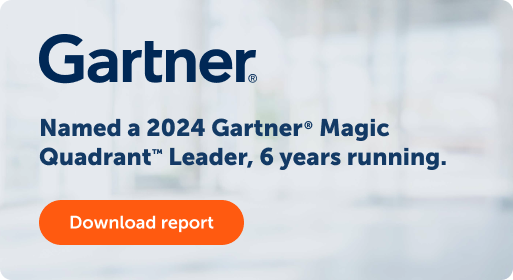- Products
Automate any process, anywhere Streamline complex, mission-critical workflows with the Agentic Process Automation System. Explore the Platform Explore the Platform
- AI System
- Build AI Agents
Automate advanced tasks with AI Agent Studio.
- Streamline workflows
Rapidly design and deploy with Automator AI.
- Process complex documents
Extract and organize data with Document Automation.
- Discover opportunities
Identify inefficiencies with Process Discovery.
- Orchestrate automations
Centralize initiatives with Automation Workspace.
- Build AI Agents
- Automation System
- Govern programs
Establish frameworks and oversight with CoE Manager.
- Automate from any app
Get AI-powered assistance with Automation Co-Pilot.
- Speed workflows with cloud
Power instant data exchange with serverless Automation Anywhere Cloud Service
- Unify systems
Connect applications and workflows with seamless integrations.
- Govern programs
- View all Products
-
- Solutions
Featured Solutions
 Google Cloud Google Cloud and Automation Anywhere empower enterprises to fast-track their AI + Automation journey. Google Cloud
Google Cloud Google Cloud and Automation Anywhere empower enterprises to fast-track their AI + Automation journey. Google Cloud Amazon Web Services Streamline workflows, reduce costs, and make automating even easier when you combine the Agentic Process Automation System with AWS Amazon Web Services
Amazon Web Services Streamline workflows, reduce costs, and make automating even easier when you combine the Agentic Process Automation System with AWS Amazon Web Services- By Industry
- By Function
- By Technology
- View all AI Solutions
-
- Resources
Get Community Edition: Start automating instantly with FREE access to full-featured automation with Cloud Community Edition.
Featured
 Named a 2024 Gartner® Magic Quadrant™ Leader for Automation. Celebrating Six Years of Recognition as a Leader. Download report Download report
Named a 2024 Gartner® Magic Quadrant™ Leader for Automation. Celebrating Six Years of Recognition as a Leader. Download report Download report - Customers
New & improved certifications
 Give yourself a competitive advantage with Automation Anywhere's industry-recognized certifications.Explore Certifications Explore Certifications
Give yourself a competitive advantage with Automation Anywhere's industry-recognized certifications.Explore Certifications Explore Certifications - Company
Get in touch with us Get help, know more, learn, ask questions, or just say Hi! Contact Us Contact Us
- Get To Know Us
- Announcements
- Society
-
Blog
AI Agents Are Reshaping Finance—Here’s What You Need to Know
Navigate to content
- What are AI agents in finance?
- Common use cases of AI agents in finance
- Advantages of AI agents for finance
- How do AI agents work in finance?
- Challenges and considerations in implementing AI agents in finance
- Must-have features to look for in an AI agent platform
- Future of AI agents in finance
- How Automation Anywhere supports AI agents for finance

The financial landscape is rapidly evolving, driven by the need for efficiency, accuracy, and data-driven decision-making. As finance and accounting teams face increasing operational challenges—from fraud prevention to regulatory compliance—AI agents have emerged as a promising solution.
This article explores what AI agents are, their common use cases in finance, the advantages they bring, and how to effectively implement them within financial operations.
What are AI agents in finance?
AI agents are action-enabled AI-powered assistants that work autonomously to achieve defined goals involving cognitive tasks, interacting with their environment to collect and analyze data using machine learning (ML) and execute tasks automatically. AI agents work either semi-autonomously or autonomously, making decisions based on knowledge inputs and perceptions, communicating in natural language, adapting to dynamic situations, and acting to reach the desired objective.
In modern finance, where data is abundant and the pace of change is rapid, the demand for AI agents is significant. They assist in various tasks, such as automating routine processes, enhancing risk management, and providing decision support. By acting as digital co-workers rather than replacements, AI agents enhance human decision-making, allowing finance teams to focus on strategic, high-value tasks like financial planning and forecasting.
Common use cases of AI agents in finance
AI agents are already embedded in many areas of financial operations, delivering measurable benefits across core processes. Below are some of the most common and impactful use cases.
Accounts payable and receivable automation
AI agents can automate the entire invoicing process, from invoice receipt to payment reconciliation. They can handle follow-ups on unpaid invoices, ensuring timely payments and improving cash flow management.
Fraud detection and compliance monitoring
AI agents monitor transactions in real-time, using machine learning algorithms to detect anomalies and potential fraud. They also ensure compliance with regulations such as the Sarbanes-Oxley Act (SOX) and General Data Protection Regulation (GDPR) by continuously monitoring activities and flagging any irregularities.
Cash flow forecasting and budgeting
By analyzing historical data and market trends, AI agents predict future financial trends. This capability enables finance teams to make informed budgeting decisions and manage cash flow more effectively.
Customer support and virtual assistants
Conversational AI agents can support internal inquiries related to expense reporting, invoice status, or procurement—freeing up finance teams to focus on more strategic tasks.
Advantages of AI agents for finance
With increasing emphasis on efficiency, fraud detection, and compliance, integrating AI agents into financial operations offers numerous advantages.
Efficiency and speed
AI agents operate 24/7, significantly reducing processing times for various financial tasks. This continuous operation allows finance teams to respond to changes and demands more swiftly.
Accuracy and reduced errors
By automating data-heavy tasks, AI agents minimize the risk of human errors. This increased accuracy is crucial for compliance and regulatory reporting, helping institutions avoid costly fines and operational delays.
Scalability
AI agents easily scale with the business, accommodating increased transaction volumes without a corresponding increase in costs. This scalability is essential for growing businesses with increasingly complex financial operations.
Data-driven decision-making
Machine learning models embedded in AI agents provide predictive insights that enable proactive risk management and informed decision-making. This capability is invaluable in a landscape where data-driven strategies are critical for success.
How do AI agents work in finance?
To really understand the value of AI agents, it helps to see what’s happening under the hood. They’re made up of a few core components that work together to automate tasks, analyze data, and keep financial operations running smoothly.
AI agents operate through several key components, including:
- Data ingestion: AI agents gather data from ERP systems, invoices, journal entries, and internal finance reports.
- Machine learning models: These agents utilize machine learning algorithms to analyze data, identify patterns, and make predictions.
- Natural language processing (NLP): For customer-facing tasks, AI agents use NLP to understand and respond to inquiries in natural language.
- Automation frameworks: AI agents automate workflows by executing predefined processes based on the data they analyze.
For example, when processing an invoice, an AI agent automatically extracts relevant data, validates it against purchase orders, and initiates payment processes. By making real-time decisions based on incoming data, AI agents streamline operations and enhance efficiency.
Challenges and considerations in implementing AI agents in finance
Despite the remarkable advancements in APA technologies, AI agents still face certain limitations. And while AI agents for finance can deliver substantial benefits and return on investment (ROI) immediately upon deployment, your business must be aware of their most prevalent challenges, including:
Data quality and integration issues
AI agents require clean, structured data to perform effectively. Ensuring data quality and integrating various data sources can be a complex task.
Compliance and regulatory risks
AI agents must adhere to financial regulations. Organizations need to ensure their AI implementations comply with relevant laws to mitigate risks.
Change management
Transitioning to AI-powered processes requires a cultural shift within organizations. Preparing teams for this change is crucial for successful implementation.
Ethical considerations and bias
It's essential to ensure transparency and fairness in AI decision-making processes. Organizations should implement measures to avoid biased outcomes in AI-driven decisions.
Must-have features to look for in an AI agent platform
Not all AI agent platforms are created equal—especially when it comes to the unique needs of finance and accounting teams. To build toward an autonomous enterprise, finance leaders need tools that are powerful, flexible, and easy to use. Below are the must-have capabilities to look for when evaluating agentic process automation (APA) platforms.
1. Low-code AI agent development
Look for platforms with a low-code or no-code environment that enables finance teams—not just developers—to build and tailor AI agents quickly. This flexibility accelerates deployment and allows you to scale automation across functions like AP/AR, tax, and reporting without relying heavily on IT resources.
2. Cognitive automation with document processing
AI agents should be equipped to handle high volumes of unstructured financial data. Built-in cognitive automation makes it possible to extract, classify, and process data from invoices, contracts, and audit reports with speed and accuracy—reducing manual effort while improving data reliability.
3. Seamless integration with AI and machine learning models
Ensure the platform can easily connect with both pre-trained and custom machine learning models for use cases like predictive forecasting, fraud detection, and credit risk analysis. Look for platforms that also integrate with external services (like OpenAI or Google Cloud AI) to expand your AI toolkit.
4. Real-time process monitoring and insights
Visibility is key. Your platform should offer real-time dashboards and analytics that provide actionable insights into performance, exceptions, and compliance—supporting everything from cash flow management to audit readiness.
5. Robust security and compliance frameworks
Financial data demands rigorous protection. Look for platforms that offer enterprise-grade security features, including audit trails, role-based access controls, and end-to-end encryption. Compliance with standards like SOX, GDPR, and PCI-DSS should be built in—not bolted on.
6. Pre-built financial process agents
To speed up time-to-value, choose platforms that offer pre-built agents and templates for core finance functions—such as reconciliations, cash flow management, compliance reporting, and invoice processing. Customizing these agents lets your team hit the ground running and deliver results faster.
Future of AI agents in finance
The future of AI agents in finance is accelerating—and it’s full of potential. As the technology matures, agents are becoming more autonomous, more adaptable, and more capable of managing entire financial workflows with minimal human input. With the rise of multimodal AI, they’re even beginning to process and respond to a wider range of inputs—voice, text, and video—making them more versatile and engaging.
But the real shift goes beyond productivity gains. These advancements are laying the groundwork for the autonomous enterprise—where AI agents don’t just support tasks, they drive them. Through agentic process automation (APA), AI agents can move beyond isolated actions to take ownership of complex processes, make decisions in real time, and coordinate work across systems, data, and teams.
Within finance, several trends have emerged, including:
- Multi-agent collaboration
AI agents are beginning to work together more seamlessly—coordinating across departments, systems, and workflows. This collaborative capability allows them to manage complex, interconnected processes and drive greater efficiency across the organization. - Predictive finance and real-time insights
With predictive analytics increasingly built into AI agents, finance teams will gain deeper insights into cash flow patterns, budget variances, and compliance risks. These real-time insights support smarter decision-making and more agile financial strategies. - Progress toward the autonomous enterprise
AI agents are helping finance teams take meaningful steps toward the autonomous enterprise—where systems run with minimal human oversight. As agents take on more responsibility for decision-making and execution, finance departments can shift from managing tasks to managing outcomes, unlocking greater speed, accuracy, and agility across the board.
Together, these trends signal a major shift in how finance operates—moving from manual processes and siloed systems to intelligent, interconnected operations powered by AI. As AI agents become more capable and collaborative, they’ll serve as the foundation for a truly autonomous finance function—one that’s faster, smarter, and built for the future.
How Automation Anywhere supports AI agents for finance
At Automation Anywhere, we’ve built a platform designed to make AI agents not just possible—but practical—for finance teams. With AI Agent Studio, you can build and deploy agents tailored to your unique financial processes, all within a low-code environment that keeps you agile and in control.
Whether you're automating invoice processing, enhancing fraud detection, or delivering faster insights to your leadership team, AI Agent Studio brings together everything you need to make it happen—without requiring deep IT resources.
Key features include:
- Agent creation interface: A user-friendly interface for building AI-powered agents that integrate robotic process automation (RPA), machine learning models, and NLP.
- Conversational AI integration: Design virtual assistants to support finance-related inquiries and internal workflows.
- Seamless enterprise resource planning (ERP) integration: AI agents integrate with major financial systems, ensuring seamless data flow and process execution.
- Complex document processing: Extract and process unstructured data from financial documents, improving accuracy and efficiency.
- Performance monitoring: Real-time tracking and optimization of AI agents' performance ensure continuous improvement in financial operations.
As AI agents take on a bigger role in financial operations, Automation Anywhere gives you the tools to move from automation to autonomy—one use case at a time.
Curious what that could look like for your team? Schedule a demo to see AI agents in action.
Put AI agents to work across your finance team.
About Automation Anywhere Staff
Get to know the Agentic Process Automation System.

For Students & Developers
Start automating instantly with FREE access to full-featured automation with Cloud Community Edition.



